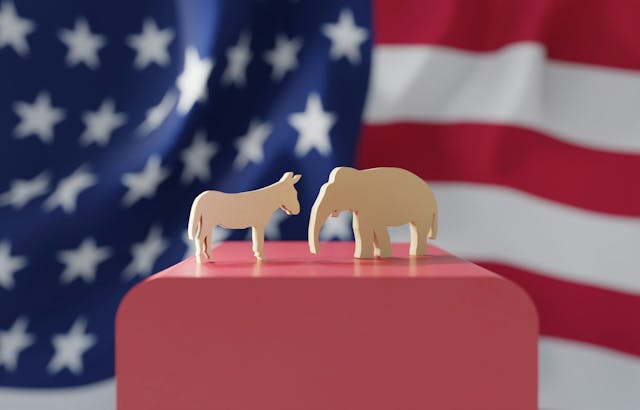Nevada Democratic Majority Leader Kills Effort to Improve Democracy

“It’s not.” “We don’t think it’s worth a hearing. Next question.”
With those two short phrases in answer to a reporter’s question, Nevada State Senate Majority Leader Aaron Ford (D-Las Vegas) announced the end of the road for a bill that would have replaced Nevada’s closed primary system with a nonpartisan, top-two open primary.
The bill, SB 103, was introduced by Senator James Settelmeyer (R-Minden). It was Settelmeyer’s second attempt to bring top-two to Nevada.
In the 2015 session (Nevada’s legislature meets every two years for 120 days), Senator Settelmeyer, who was vice chair of the Senate Legislative Operations and Elections Committee, along with committee chair Patricia Farley, introduced a top-two bill on behalf of the committee. The bill got a hearing, then died in its original form. The bill ended up being used for other purposes. (Note: Senator Farley was a Republican during the 2015 session but changed her party affiliation to Non-Partisan in November 2016.)
Why the majority leader would direct the current chair of the Elections Committee, Nicole Cannizzaro (a freshman legislator from Las Vegas), to not give SB 103 a hearing may never be known given Ford’s remarks. But one has to wonder if he felt the Democratic Party would be threatened by giving more voters a voice in all elections.
What was his motivation for not allowing citizens to express their opinion in an open forum in front of their elected officials? Even if the bill did not pass out of committee, shouldn’t the people at least be given the opportunity to express their opinions when such an important bill is before the legislature?
There are other voting reform measures before the legislature this session. The following proposals have had hearings and are working their way through the legislative process:
- Restoring voting rights to ex-felons;
- Enshrining a voters’ bill of rights into the state constitution;
- Allowing 16 and 17 year olds to pre-register;
- Establishing voting centers on election day; and
- Giving the major political parties the option of holding presidential preference primaries.
An initiative petition establishing automatic voter registration through the Department of Motor Vehicles was passed along party lines, with a Democratic majority, but it was vetoed by the governor. It will still be placed on the November 2018 ballot for the voters to decide.
Given all these bills have been favorably considered, why view a bill that would extend voter participation to the ever increasing number of voters not affiliating with either the Democratic or Republican Party the same treatment?
The Democratic Caucus defines its priorities for the current session in its Nevada Blueprint. Included in the blueprint is the statement: "We also need to protect our heritage. That means preserving Nevada’s natural environment, protecting our constitutional rights, and making it easier for our citizens to participate in the democratic process."
"..making it easier for our citizens to participate in the democratic process."
When the governor issued his veto message on automatic voter registration, Democratic Assembly Speaker Jason Frierson responded:
“Nevadans agree that we need to have a voting system that protects the fundamental right of every eligible voter— Democrat, Republican, non-partisan or otherwise. Voting is a right, not a privilege and we should make it easy for Nevadans to hold their own government accountable. While I’m disappointed by the governor’s decision to veto IP1, I look forward to the people having the final say in 2018.”
"..a voting system that protects the fundamental right of every eligible voter— Democrat, Republican, non-partisan or otherwise."
"Voting is a right, not a privilege.."
"..make it easy for Nevadans to hold their own government accountable."
These statements add to the confusion as to why there was no hearing on a top-two primary bill. The Democratic Caucus clearly sees expanding voting rights as an important issue facing Nevada.
Given voting rights is a caucus priority, why would Senate Majority Leader Aaron Ford not give a full explanation? We’ll never know.



